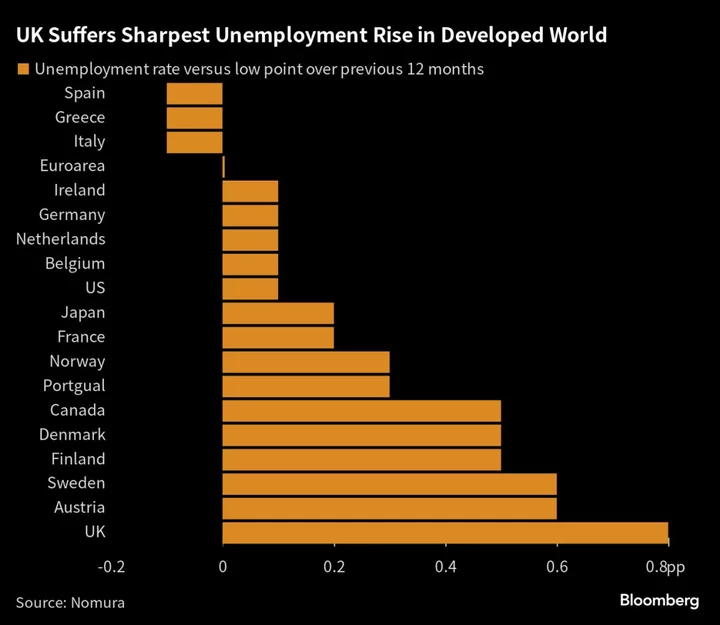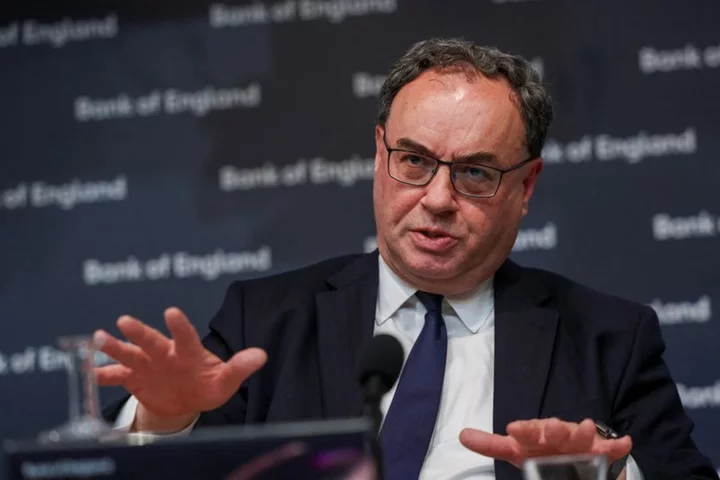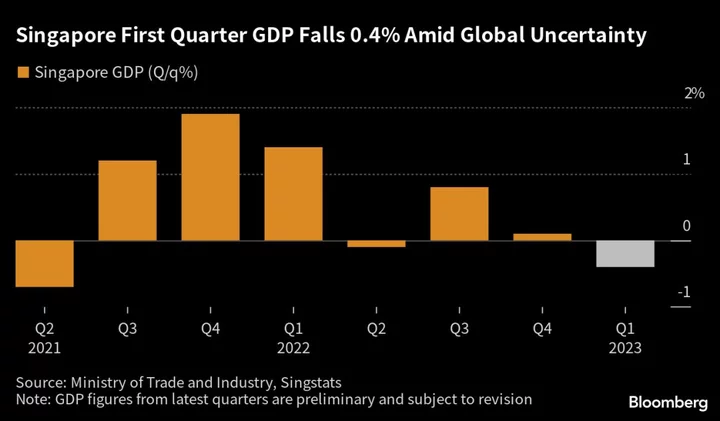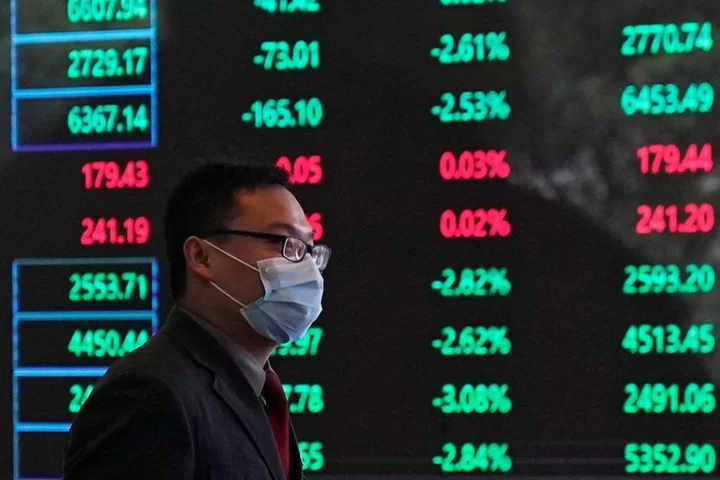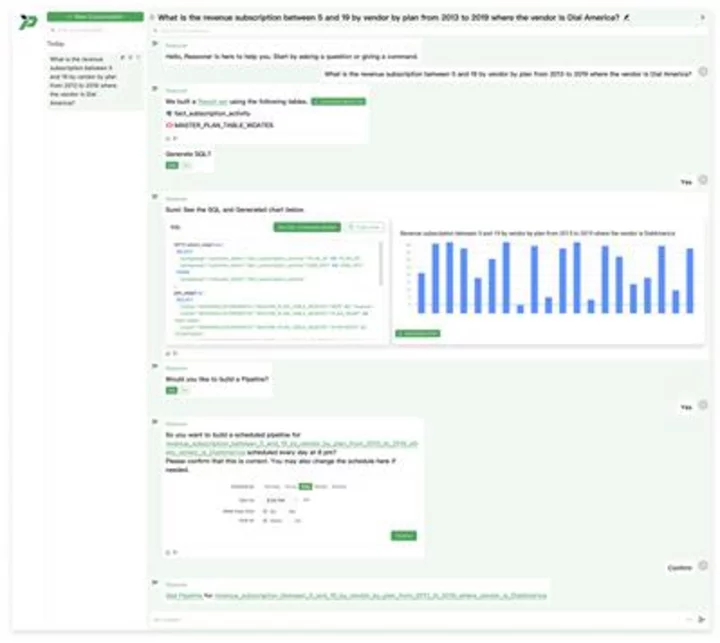With 4.3% unemployment, the UK economy would seem to be holding up well against a barrage of headwinds. But by one reliable measure, the jobless rate may already be telegraphing a recession.
The so-called “Sahm rule” suggests the UK is undergoing the steepest rise in unemployment in the developed world, deepening recession fears that are growing by the day in the City of London.
The rule flashing red shows that a once red-hot labor market is quickly turning cold, potentially providing a final shove for a lackluster economy and dealing another blow to Prime Minister Rishi Sunak.
The closely watched rule in economic circles indicates the start of a recession when the three-month moving average of the unemployment rate rises by 0.5 percentage points or more relative to the low during the previous 12 months. The historical pattern was found by US economist Claudia Sahm, who worked as a senior economist for the Federal Reserve Board and the White House’s Council of Economic Advisers.
It has retrospectively been correct on every US recession since the 1960s and also has a strong record in the UK. It signaled every UK recession since the mid-1970s but was slightly late to the pandemic downturn because unemployment was depressed by the furlough program that subsidized workers’ wages. It also sent two false positives during the eurozone debt crisis and before the financial crisis.
Since hitting a near half-century low of 3.5% last year, unemployment in the UK has risen by 0.8 percentage points to 4.3%, pushing past the 0.5 point red line stipulated by the rule.
Analysis by Nomura showed that, under the Sahm rule, this rise in joblessness relative to the previous 12-month trough was much greater in the UK than all of the major eurozone economies, the US and Japan. By comparison, unemployment is up just 0.1 point in the US and Germany, 0.2 point in France and is lower in Spain and Italy.
Once a point of strength, the UK jobs market is becoming another major headwind. It means a recession could arrive shortly before Britons vote at a general election widely expected next year. With the Conservatives trailing the opposition Labour Party in the polls, Sunak has made growing the economy one of his key pledges.
“There have been a number of data lately that have suggested the economy is creaking, but the rise in the unemployment rate is the one that concerns us the most,” said Dan Hanson, senior UK economist at Bloomberg Economics, who predicts a recession from the fourth quarter. “Joblessness tends to rise rapidly during recessions, which feeds back negatively onto spending. A big jump could mean our own forecast for a modest downturn is too optimistic.”
Joblessness, depressed by pandemic labor shortages, is now starting to climb as the economy struggles under the weight of higher interest rates and the worst cost-of-living crisis for decades. Figures due later this month are forecast to show unemployment held at 4.3% in the three months to August. However, it is then expected to climb again heading into 2024, possibly topping 5%.
George Buckley, chief UK economist at Nomura, also believes the jobs market will be a key driver that helps tip the UK into recession.
“The labor market combined with a lot of other factors, including higher interest rates, a weaker housing market and high inflation which is still dampening real wage growth, are all negatives for GDP,” he said.
Rising joblessness is perhaps better news for the BOE. Officials tasked with bringing rampant inflation back to target are alarmed that salaries are growing at a record pace almost two years after they began raising interest rates — threatening a wage-price spiral.
The central bank is growing increasingly confident that the jobs market is now responding to its 14 back-to-back interest rate rises, with survey data already showing weakness on wages. Money markets show traders think rates, at 5.25%, are at or close to a peak.
Deputy Governor Ben Broadbent said last week there are “clear signs” the the monetary tightening is weighing the economy, including on employment. Fellow rate-setter Swati Dhingra said on Thursday that the odds of recession are evenly balanced, warning that most of the previous hikes are still yet to feed through.
Tomasz Wieladek, chief European economist at T. Rowe Price, said central bankers will be increasingly inclined to look through official earnings data, which have yet to register the slowdown evident in surveys. The labor market, he said, has historically been “like an on-off switch” — either tight or loose.
“All of this evidence suggests that we are likely headed into the ‘off-state’ of the UK labor market,” he said. “Unemployment will likely be much higher going forward. In the past 50 years, moving into the ‘off-state’ of the labor market, which is where we are headed now, was associated with recession five out of six times.”

